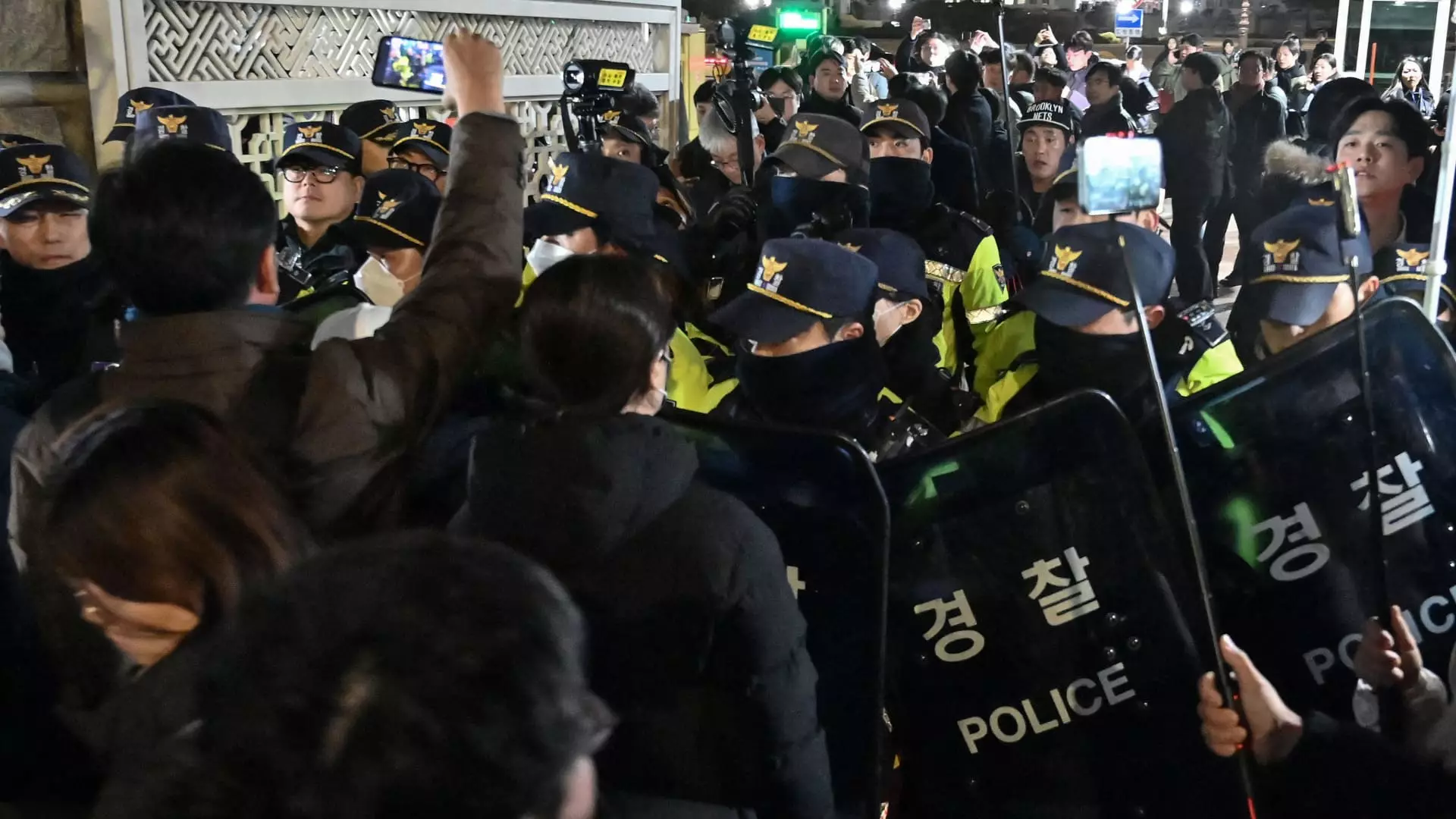In a stunning revelation, South Korean President Yoon Suk Yeol recently invoked emergency powers, leading to a declaration of martial law. This unprecedented action has quickly sent shockwaves through the financial markets, notably affecting the iShares MSCI South Korea ETF, which tracks major companies in the nation. The move raises critical concerns regarding political stability in a country that is now the 13th largest economy in the world, potent with global economic connections and responsibilities.
As reports surfaced of a 7% drop in the ETF—bringing it to a 52-week low—the ramifications of such political instability became alarmingly clear. Although losses were mitigated to about 2.4% by the close of trading, the initial reaction from investors exemplified a clear lack of confidence in the current administration’s capacity to govern effectively under such strained conditions.
The financial fallout was palpable across various sectors. Notably, Korean Electric Power’s American Depositary Receipts (ADRs) fell by 5%, alongside significant declines from e-commerce giant Coupang, which experienced a 6% drop. KT Corporation and Posco, major players in the telecommunications and steel industries, respectively, followed suit, with declines of 3% and more than 6%. Such widespread losses indicate that investor sentiment is tethered closely to political stability and governance.
The rapid response from lawmakers, who convened within mere hours of the martial law declaration to oppose Yoon’s decree, illustrates a legislative urgency to restore order and confidence. The notable speed of this reaction highlights deep-rooted divisions in South Korean politics, particularly Yoon’s accusatory tone toward opposition parties. He claimed that their actions were favoring North Korea, which merely intensified fears of internal conflict rather than resolving the situation.
The declaration of martial law naturally raises profound questions about the implications for democratic processes within South Korea. The stipulations under martial law banning political activities set a worrying precedent, reminiscent of darker periods in the nation’s history when civil liberties were compromised. Notably, this is the first martial law declaration since the late 20th century and, as such, marks a significant regression that might destabilize the democratic norms South Korea has strived so hard to uphold.
With the Korea Exchange poised to hold an emergency meeting to determine future trading days, and the value of the South Korean won tumbling against the U.S. dollar by 1.9%, analysts and political observers now anticipate that the potential for prolonged instability looms large. The current climate necessitates careful scrutiny, both from domestic stakeholders and international communities, to reinforce the importance of democratic practices in navigating crises.
The economic impacts witnessed as a bow wave of President Yoon’s martial law declaration serve as a critical reminder of the interplay between governance and market confidence. This tumultuous situation not only threatens to unravel decades of reforms rooted in democratic principles but potentially jeopardizes South Korea’s global economic standing as well. The situation invites an urgent need for transparent and effective leadership as the nation grapples with this transformative moment in its history.

